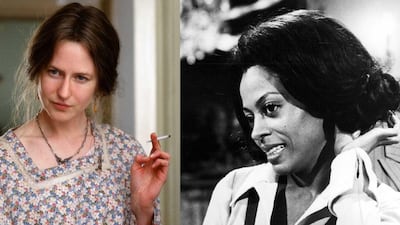Film scores are generally intended to be unobtrusive. They are designed to underscore narrative impact or add emotional depth to an accompanying scene. A good score contextualises rather than detracts from a film. It should be almost unnoticeable, guiding us from the background.
As such, film scores can be great music to work to, or most of them any way. (I can't imagine writing 10 words to the blaring Fast and Furious soundtrack that leaves me feeling like I'm at Pull & Bear during a sale).
That being said, there are some great scores to help you burn the midnight oil or to hone your focus. Here's our pick of seven scores you can listen to back-to-back while you work from home.
'The Hours'
Philip Glass is widely recognised as one of the most influential composers of the late 20th century. Though his work has been often associated with the minimalism movement, Glass has described his work as "music with repetitive structures".
Glass brought his trademark compositional approach to the soundtrack for the movie The Hours, which is inspired by Virginia Woolf's life and her novel Mrs Dalloway. The minimal pianos and textural violins fall like rain drops as they sustain a repetitive pattern, which Glass uses to contrast a few odd notes that reverberate in full emotive bloom.
'Solaris'
Eduard Artemyev used a unique synthesiser when composing the score for Andrei Tarkovsky's 1972 classic. The Soviet-made ANS is a photo-electronic synthesiser that generates sound based on drawings of soundwaves. The 'drawn sound' is made audible by a complex system of glass discs and light beams. And yes, the soundtrack of Solaris can be as out-there as the instrument itself. But don't let that deter you, there's much to love about the soundtrack. There are Bach-inspired pieces as well as textural ANS-made sounds that will envelop you in a lush sonic space.
'There Will Be Blood'
When I first heard Jonny Greenwood had composed the score for a Paul Thomas Anderson film about a ruthless oil prospector … Well, I was as confused as I was excited. The project seemed to be planets away from his work with Radiohead.
Still, Greenwood's Hollywood debut is as memorable as Daniel Day-Lewis's performance in the film. The score is more measured and well-crafted than anything he's done before. And given the UK rocker's discography, that's saying something. There's a little bit of piano and percussion, but it's the strings that steal the show on this score. The arrangements move in spirals at times and glide in others. There Will Be Blood was the first of many collaborations between Anderson and Greenwood, who went on to work together on The Master (2012), Inherent Vice (2014) and Phantom Thread (2018).
'The Irony of Fate'
Mikael Tariverdiev was one of the most prominent film composers of the Soviet era. He composed the scores for more than 130 Soviet films and TV shows. In fact, we were tempted to put his work on Seventeen Moments of Spring on the list, but since it was a TV show, we had to go with The Irony of Fate (which is no less breathtaking). It was the perfect score for the 1976 romantic comedy, which – in true Soviet fashion – has deep tints of sadness. Though more than 40 years old, the soundtrack still seems fresh and emotive, with thematic strings and acoustic guitars peppered throughout.
'Lady Sings The Blues'
The soundtrack to the Billie Holiday biopic features some of her most soul-swooning songs. Except here, they are sung by Diana Ross, who retains her individual voice while playing tribute to Lady Day. She does as impressive of a job singing Holiday's tunes as she does playing the singer in the film. Though we were a bit hesitant of putting a soundtrack with vocals in this round-up, there's something enchanting about the way Ross sings Holiday. It's mesmerising and atmospheric; definitely a great soundtrack to listen to while working. Look out for God Bless The Child and Good Morning Heartache.
'Joker'
The plot of the film about the Gotham City anarchist might not be the most relaxing, but Hildur Guonadottir’s Oscar-winning score has its merits for adding background drama. Yes, it’s dark, sometimes unsettling, with its bleak cellos and moody strings. But if you’re the type that likes working to dark, atmospheric music, then this is the score for you. We’ll just leave this here.
'Birdman'
Alright, here's something with a different rhythm, the score to Alejandro Gonzalez Inarritu's 2014 Oscar-winning film Birdman. The soundtrack is mainly comprised of the live drumming of Antonio Sanchez, but also features compositions by Tchaikovsky, Mahler and Rachmaninoff. This one is great if you want a little percussion in the background to keep the tempo.
_________________
Read more:
'We shall overcome it': Hussain Al Jassmi releases powerful ode to the region's coronavirus efforts
Fayrouz makes rare appearance to recite a prayer on YouTube
_________________


